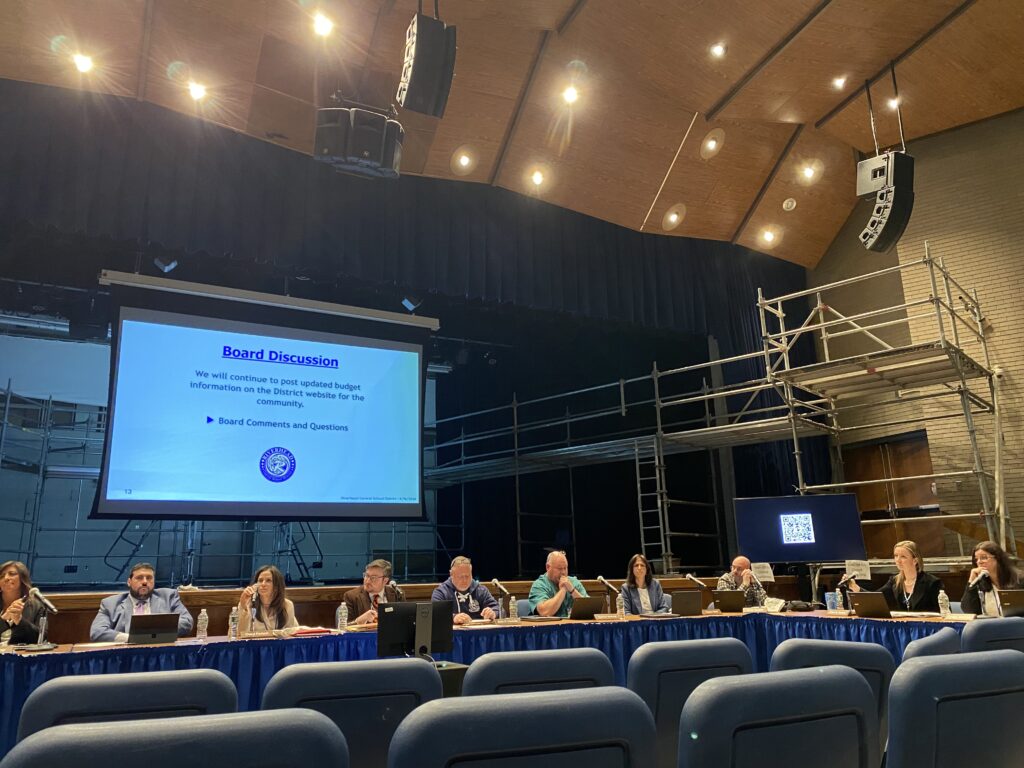Following fatal house fire, Town officials outline changes to rental law for improved safety

In the wake of the horrific Nov. 16 fire that killed five family members, Riverhead Town officials are discussing changes to its rental dwelling unit law aimed at increased safety.
The fire that quickly consumed the three-story home on Second Street, trapping the five residents in an upper floor apartment, was caused by cigarettes, Suffolk County police confirmed to the News-Review Thursday. Police had suspected smoking to be a likely cause from early in the investigation.
“The impetus here is to better manage safety requirements for rental properties in the town,” said Town Attorney Erik Howard at Thursday’s Town Board work session.
The proposed rental permit revision would reduce the duration of the rental permits from two years to one, Mr. Howard said. Officials say there are almost 2,000 rental permits in the town.
“This would allow us pretty much annual access to the rental units so they can be inspected, including making sure that all fire safety systems are operational, and any other issues that arise from things like obstructions to egress and things like that,” he said.
Councilman Ken Rothwell said it will create more work for code enforcement.
“We are going to need additional personnel,” he said.
He said by increasing permit fees, the town would be able to cover the costs of hiring additional code enforcement officers.
Mr. Howard said increased fees would done separately by the Town Board. He proposed the new rates take effect on Jan. 1, 2023.
The town is also adding five safety features for third-floor occupants.
Three-floor dwellings — whether occupied as a single dwelling or a multiple dwelling unit — will be required to have a fire sprinkler system on all levels, as well to have a secondary means of emergency egress, or exit, Mr. Howard said. Officials said they were not aware of any other three-story dwelling in town.
Mr. Rothwell said one of the town’s responses to the fatal fire was to make sure there will always be a secondary egress.
Supervisor Yvette Aguiar said the home that burned had a third-floor egress but it burned as well. She said it was also possible that the fire alarms didn’t work.
“This is no way insinuates any wrongdoing in the structure fire,” Mr. Rothwell said of the code revisions. “It just brings it into the light and lets us take a closer look at this and ask if we are in fact doing everything we can to ensure that this tragedy doesn’t occur again.”
Councilman Tim Hubbard asked whether the town should require all second-story rentals to have a ladder or some kind of means of getting out.
Code enforcement officer Richard Downs said these regulations must be in compliance with state codes, and the town doesn’t require it currently.
The current biennial rental permit fees range from $300 for a one-unit rental to $640 for a four-unit dwelling.
The proposed fee change would go from $300 for two years to $250 per year, Mr. Rothwell said.
Failing to renew within a three-month window could result in a $200 fine.
“We’ve also incorporated the registration process so when you file your application and it’s completed, you get a registration and that’s good for 90 days until you can get your inspection,” Mr. Downs said. “That allows us time to schedule inspections and allows the time for the landlord to schedule the inspection.”
The rental permit would require an accurate floor plan, according to the proposal.
Councilman Bob Kern suggested the permits be available online.
The town rental code dates back to 2006.








